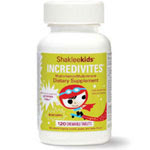I have received many questions about the affordability of eating healthy. Many of you desire to provide healthier meals and snacks for your families, but are finding that it increases your budget. And, for most of us, we simply can't expand the grocery budget!
I'll be real with you. The choice to eat healthier requires more commitment (of both time and money) and more diligence. But it doesn't mean we have to take out a second mortgage! We may not be able to use many of the coupons in the Sunday paper, but there are ways to keep costs from skyrocketing. (Please read my previous post that addresses some of these strategies.)
I find that by planning and budgeting, I can keep our grocery costs comparable to families eating the standard American diet... sometimes a lot less! But, I am not one of the famous few who can buy $300 of groceries for $0.79. (I can't remember her name, but I saw her on the AOL News headlines!)
I'm going to work through some of the specific questions you've sent me, and hopefully I'll be able to spark some ideas of how you can make "healthy" work for your family.
Kristilea writes: "It's nice to hear that you started from ground zero! It gives me hope since I had to do the same thing. I thought I was doing pretty good at making healthier meals until I watched Food, Inc.. Then I realized I had soooo much further to go! It was discouraging at first, but I'm determined to feed my family healthy food! My question would be, how do you feed your family the best foods on a VERY tight budget? I use coupons, I make menu's around the sale item, but I can't afford free range meat, so what do I need to make a priority? What are the foods that I need to stay away from the most?"
First, let me say that I highly recommend watching the documentary Food Inc. It is available on instant watching on Netflix, if you have an account there. Or, you can watch it online for $2.99 at Amazon On Demand. The film will really open your eyes to what is going on in the food industry. There have been several documentaries like this in the last decade, but Food Inc., in my opinion, sums everything up most succinctly.
Second, I'll say that finding your own family's food resources at good prices will take time. It never happens over night. But, as you network with one farmer, you'll be led to others. And as you connect with one co-op group, you'll hear other members mention other food sources. Keep your eyes and ears open.
Think outside the grocery store box. Be like the Proverbs 31 woman "bringing her food from afar." Don't let yourself be discouraged. Don't give up! And don't forget to pray for God's direction. (I sound bossy now, don't I?) But really, only a small percentage of what we eat comes from the grocery store.
We buy our chickens from a local farmer, our beef from another local farmer, our eggs from some enterprising children at church, our cheese and butter from a wholesale company in Ohio, our bulk grains from Walton Feed (ordering with a big group enables us to get freight shipping which is much cheaper), our vegetables from a co-op, our baking items from Country Life Natural Foods, and on and on...
Consider the grocery store your last stop. And, you can still find coupons for natural and organic foods if you search. Start here for a pretty good list.
Back to the original question: I do think that meat is one of the most important places to start. There is a greater concentration of unwanted junk in animal products. And you can't wash or peel some of it off as you can with vegetables and fruit! However, if I had to buy our high-quality meat at the grocery store, there would be no way we could afford it. Just the organic ground beef at my Kroger is nearly $6 per pound. And the grass-fed options at Earth Fare are nearly $10 per pound. With my growing family, that just wouldn't work.
So, we eat less meat. And the beef we eat about twice a week, we buy from a local farmer. We buy in bulk (like a half cow), and the cost has been around $2.50 to $3.00 per pound, which includes all cuts and not just ground beef. To find a local source, you may want to consider your high school's FFA club. Or, you could call Farm Bureau for a local listing of farmers. You may find a rural resource magazine at the library, the health food store or at the Farmer's Market (in season).
Or, I have found that homeschoolers really know where to find stuff... so do librarians. You could ask your librarian if she knows any naturally-minded homeschoolers :-) Believe it or not, that's how someone found me! And someone else found me by my chiropractor's referral. (I never know who will call!) Then, there's always LocalHarvest.org. You may not find what you're looking for in the first farmer you call, but ask questions and he may refer you to other farmers in the area or other listings of local resources.
But all this networking wouldn't really help if you didn't have the money to purchase what food products you find. So, I really encourage you to start a bulk food budget. Set aside a certain amount each month and let it grow as you look for resources. Once you get the ball rolling, you'll be able to make some bulk purchases, which will reduce your grocery bill, which will allow you to set aside more for bulk buying, and the cycle will support itself. But, you've gotta start somewhere. In the beginning it may be a bit of a sacrifice. But, you will have so much more freedom once you've got the budget instated.
To summarize:
- Make it a priority to start a bulk food budget.
- Start to look for food resources outside of the grocery store.
- As you make the transition, keep your eyes open for Manager's Specials and good coupons to use at the grocery store. There are deals to be had!
- Shop the perimeter of the store. The produce, dairy and other real foods are usually around the outside of the store. Aside from peanut butter and beans, most of the food products found on the aisles are pretty fabricated.
- Prioritize your bulk buying. As you are able, switch to non-commercial meat products, dairy products, produce, then baking items (in that order, unless you find a dairy supplier before you find a meat supplier, of course).
- Make as much as you can from scratch. In doing so, you'll save a lot of manufacturing and packaging costs. Plus, you'll stay away from foods that contain hydrogenated fats, white flour and white sugar, colorings, preservatives and other additives. Really, making your own food is cheaper... especially once the bulk budget is functioning and you can buy your butter and oil in large quantities, get your honey from a local farmer, and buy your nuts, seeds and grains in bulk.
Whew... this is getting long. And I haven't even tackled the specific questions yet. I'll save them for tomorrow. So stay tuned for more on this topic... there is much more to come!









































4 comments:
great post! i get this question a lot too, and what i realize is that most people are trying to buy organic substitutes for their refined favorites. that dramatically raises the food budget. i have found that making our own bread, muffins, cookies, crackers, granola, bars, etc. drastically cuts cost.
our buying situation is similar to yours- local farmers, co-ops for grains, etc. i really don't think we spend more than others on food. but i do know that i spend more time on obtaining our food and preparing it.
This is absolutely wonderful and is exactly what we are doing. I used to spend around $600 a month for processed food, now our grocery bill is about $350 a month and we eat the good stuff. I'm so glad you are getting the word out that is possible to cut down on your food budget and eat healthier at the same time. Great post!
Thank you for beginning to tackle my questions! Since you live resonably close to me, is there anyway you can e-mail me some of the places you buy your foods? I am determined to get better foods into my family, even if it takes one change at a time! Thanks
Great Post! My family with 8 children still at home eat for under $300/mth and that includes feed for our chickens and family milk cow! We make it from scratch and eat from our freezer (garden produce)!
Stopping by from Fri Follows - I'm a new follower! Love to have you stop by:
http://dimes2vines.com
Post a Comment